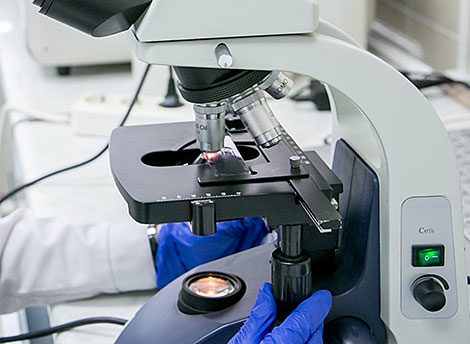Events
Belarus, Russia develop DNA technologies for forensic science, medicine

An archive photo
MINSK, 25 March (BelTA) – Belarusian and Russian scientists have developed DNA technologies for forensic science and medicine, Scientific Director of the Belarus-Russia Union program “DNA Identification”, State Deputy Chairman of the Presidium of the National Academy of Sciences of Belarus Aleksandr Kilchevsky told journalists on 25 March, BelTA has learned.
“The program ‘DNA Identification’ is meant to help forensic science and our healthcare workers,” Aleksandr Kilchevsky said. The Belarusian and Russian scientists have already developed several methods to identify a person (eye and hair color) with the help of DNA. Work is underway to perfect methods to calculate a person’s age. It is also important to estimate a person’s psychoemotional state using DNA, he added.
The State Forensic Examination Committee has also developed several DNA technologies to determine a person’s ethnicity and even the area in Belarus this person hails from, Aleksandr Kilchevsky explained.
Under the program, scientists have also developed several technologies to determine genetic predisposition to various diseases – musculoskeletal and cardiovascular systems, cancer. According to Aleksandr Kilchevsky, the results of the research will help provide preventive treatment to people in the risk group.
“We have also drawn up a concept of the new Union State program ‘DNA Identification 2’ to continue studying human genetics. There is a link between genes and our way of life. We would like to learn to identify drug addicts, alcoholics, and smokers,” Aleksandr Kilchevsky said.,” Aleksandr Kilchevsky said.
This research will also help solve crimes concerning adulteration of meat, fish, caviar, illegal wood logging. “Genetics will come useful here too. For example, a tree cut in Gomel Oblast is genetically different from a tree cut in Siberia. We also plan to study DNA of drugs to find out where they were grown,” he added.
“We have already sent the concept of the new program to the Russian Ministry of Science and Higher Education. It has already been okayed by several government agencies of Belarus. We hope it will be approved for financing and we will carry on with our research,” Aleksandr Kilchevsky noted.
On 25 March, Minsk is hosting a session of the Science and Technology Council of the Russian Ministry of Science and Higher Education and the National Academy of Sciences of Belarus to discuss the Union State program DNA Identification. The participants of the session are set to discuss the status of its implementation, to assess its results and prospects, as well as to harmonize the concept of the new program.







 print version
print version make home page
make home page add to bookmarks
add to bookmarks

